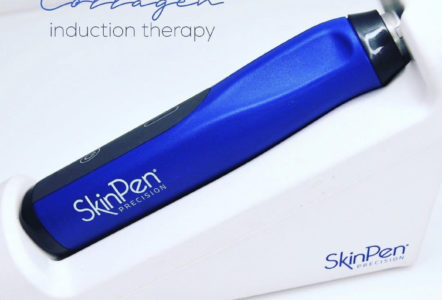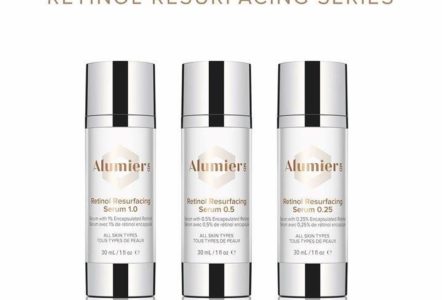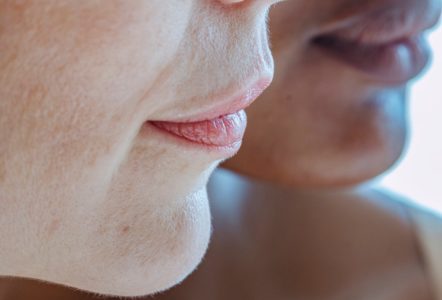Kathy Taylor-Brewin discusses the science behind peptides

Peptides are tiny protein fragments which are made up of chains of amino acids, found naturally in the skin, that improve cell communication.
When you think of protein what do you think of? Meat, fish, dairy? Protein supports many of the body’s critical functions and is vital to keep the body healthy. Protein is the most abundant molecule in the body aside from water and is a key component to muscle, ligaments and skin to give strength to the body and produce collagen which is responsible for keeping the skin plump and youthful.
Collagen makes up for 25-35% of the whole body’s protein content. To date, 29 different types of collagen have been identified that contribute to various tasks in the skin, and a variety of peptides are required to keep these collagens intact and healthy. As we age, the body loses 1% of collagen every year and thinning of ageing skin occurs at the rate of about 6% every 10 years! Collagen production is crucial to healthy skin, so think of peptides like ‘body building’ but for the skin.
peptides perform a variety of functions
So, how exactly do protein fragments and amino acid chains improve the look and general health of the skin? Peptides already exist naturally in the body (combinations of amino-acids); protein is ingested through the diet, allowing people to obtain these essential amino-acids. Amino acids then combine in specific sequences that result in peptides that perform a variety of functions – one function is producing collagen.
Each collagen molecule is made up of 1,050 amino acids and creates a triple helix, where three protein chains are twisted together in aspecific shape to form a stable protein strand. These different strands of collagen then form a network within the body and skin, giving it its structure.
Topically applied peptides support these natural collagen boosting processes in the skin so that it looks and acts younger. They help to fill the gap that exists due the natural ageing process – repointing a brick wall is a good analogy.
Palmitoyl Pentapeptide-3 (AKA Matrixyl) – a signal peptide – was the first peptide that offered an alternative to retinol for anti ageing because of its outstanding performance on all skin types, including sensitive skins. Research has shown this first generation peptide reactivated the signal for collagen I and IV, which restored the skin’s thickness, without the same sensitivity.
Second, third and even fourth generation peptides are now captivating the industry. HydroPeptide skin care offers many kinds of these peptides such as Syn-Ake, which is known as a Botox®-type peptide because of its wrinkle relaxing properties. Syn-Ake (dipeptide) blocks uptake of Na+ (post synapse) thus relaxing muscle contractions by 82% after two hours and reducing wrinkles by 52% after 28 days. Myoxinol (hydrolyzed hibiscus) inhibits muscle contractions (pre-synapse) for up to 254 hours and reduced wrinkles by 25% after three weeks.
These technologically advanced peptides are more complex chains of amino acids and have the ability once again to address a broad range of ageing concerns but more efficiently. One of these areas is the Dermal Epidermal Junction (DEJ). The DEJ holds the skin together, improving its compactness, firmness and elasticity. It maintains skin cohesion and anchors the epidermis to the dermis. Imagine the skin as plates held together by a series of chain links. If one of these links becomes weak and breaks, the plates will slip. As the protein composed links, such as laminin and integrin becomes weak within the DEJ, the skin begins to sag, and loses elasticity eventually forming a line or wrinkle.
The role proteins play within the body correlates with the actions of four categories of peptides. They are Signal peptides, which have the ability to send signals for collagen and elastin production; Neurotransmiter peptides (otherwise known as neuropeptides) which interfere with muscle contractions; Enzyme inhibitor peptides (wrinkle relaxing) which are capable of reducing collagen degradation and Carrier peptides which improve the delivery of nourishment (actives) throughout the skin. Most peptides are lab-enhanced and are derived from natural plant, keratin, wheat, milk casein, rice, potatoes, and yeast.
“Hydropeptide incorporates each category of peptide in its VLR technology,” comments April Zangl, CEO of Hydropeptide. “VLR technology is designed to boost peptide performance optimising anti-ageing results. Similar to a lock and key, peptides require a specific variety, concentration level and repetition for visible age defying results.
She adds: “Hydropeptide VLR technology allows for specific, active levels of peptides to be delivered repeatedly to their targeted areas for maximum results.”
Variety – A large variety of peptides are essential in order to treat a variety of specific skin concerns within the skin. Not one peptide can do it all. A peptide is like a key unlocking ageless looking skin with a unique amino acid sequence.
Levels – The required level of peptide (most peptides are developed by Pharmaceutical companies globally and have patented trade names such as
Argireline – (Acetyl Hexapeptide-8) recommended for clinical use is between 5-10% The clinical level of a peptide in a product is required to produce a specific
result. A good analogy would be your phone signal; the stronger the signal, the clearer the communication therefore providing maximum results.
Repetition – A high concentration of a variety of peptides applied on a regular basis will continue to feed, nourish and rejuvenate the skin. It’s similar to eating; you must eat frequent small meals throughout the day in order to perform optimally.
In salon topical applications of the peptides, using products with the correct properties during salon treatments can produce outstanding results very quickly, and people can then capitalise on these results with regular use inbetween treatments. the skin’s building blocks
Peptides are the skin’s building blocks, and are an amazing rejuvenating ingredient based upon the composition of the body and how it functions.
The benefits of peptides are fast becoming recognised within the health and beauty industry, and will continue to evolve. Professionals play a significant role in educating clients in this breakthrough use of peptides in anti-ageing skin care and to help them understand the science behind peptides.
Kathy Taylor-Brewin of Bio Active Beauty is a specialist in peptide skin care, distributing the Hydropeptide range in the UK.




